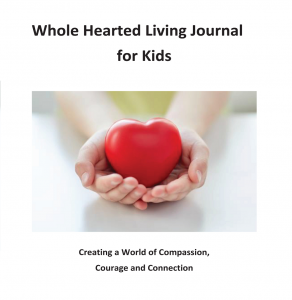What if failure is really a gift?
A student in PE is playing a game and misses the ball. She stomps off the field, tears in her eyes.
While doing an assignment, a student can’t figure out the answer to a math problem. He crumples up his entire paper in frustration and slams the book closed. Not a chance of re-directing or starting over.
Educators today often refer to encouraging a growth mindset in children. What does this mean? Given the fast pace of the world that we live in it is critical that children learn to use critical thinking and problem solving as a way of life. Today we are concerned with not only what children learn but how they learn and how they can apply that ability to challenges they will face in everyday life.
Two Ways to Develop a Growth Mindset
Begin by re-framing the idea of imperfection and failure. In the past, we were all taught to strive for perfection. Practice makes perfect was everyone’s motto. However, focusing on striving for perfection can create an environment where imperfections and failure is not tolerated or is avoided. Instead, re-frame imperfection a a part of the unique person as a part of our individual uniqueness.
Embrace imperfection: In a previous post, I wrote about the benefits of embracing our limitations and how something beautiful can come from that. In her book The Gift of Imperfection, Brene Brown shares research that shows when we acknowledge our imperfections and actually consider them building blocks that shape us and make us who we are, then we develop into a more joyful and resilient person.
Take imperfect action: The second step to developing a growth mindset is to actually welcome all opportunities to learn and grow especially those where there is the risk of failure. Teach kids that we learn more from our failures than we ever do from our success. Ask them to think back over a situation where they failed or made a mistake and evaluate what they learned from it. Taking imperfect action and accepting that failure is often a consequence of taking risks, can be a gift, but it takes a growth mindset to learn and grow from the benefits of each.
Elementary School Counselor Resources

Wyatt the Wonder Dog Learns about Mindset
Wyatt the Wonder Dog didn’t make it on the All Star baseball team and he feels like a loser. All his friends will be playing baseball this summer, while he and his pesky sister, Callie, visit grandparents at the beach. How Wyatt learns to handle disappointment and failure will be an important lesson for the future. Will he give up trying new things? Will he have the confidence to try again? Are there some things that take more practice and persistence to learn than others?
This book is funny! Its dogs doing things that only people do! I learned to try new things. ~ ~Samuel Traub, Age 6

Life has its ups and downs but when you develop courage, compassion and connection, you are equipped for the journey. Based on Brene Brown’s Gifts of Imperfections book, this journal has sixteen days of prompts that provide a quote for the day, an intention and a creative activity to help elementary age kids build a growth mindset so they can face challenges with courage and develop relationships with compassion
Whole Hearted Living Journal for Kids
.
.

[…] What if failure really is a gift? […]
[…] What if failure is really a gift? […]
[…] What if failure is really a gift? […]
[…] What if failure is really a gift? […]